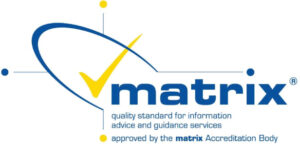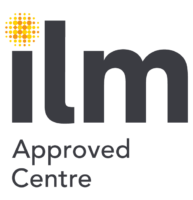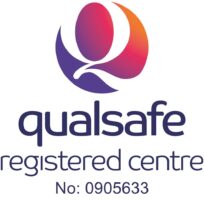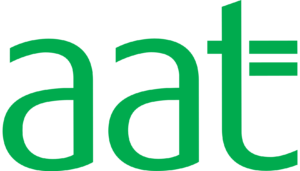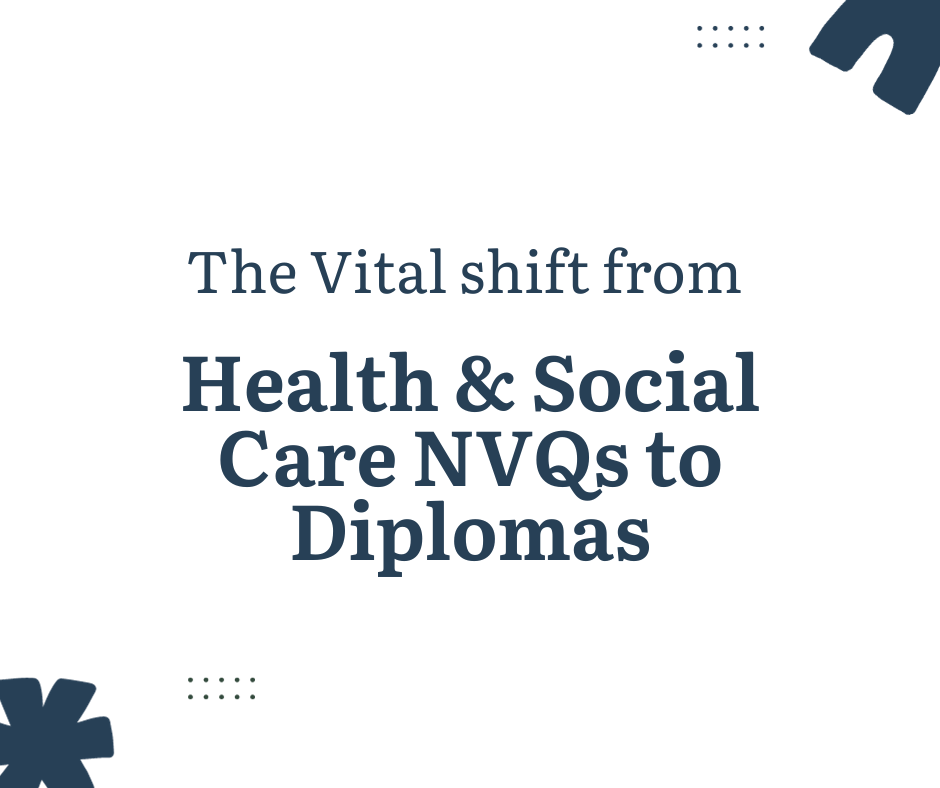
The Vital shift from Health & Social Care NVQs to Diplomas
Written on 15th, November 2023
The transition from NVQs to Diplomas in Health & Social Care occurred in 2010 as part of the UK’s educational reform, specifically in the Qualifications and Credit Framework (QCF). This restructuring was pivotal for aligning vocational qualifications with industry needs and standardisation.The shift to Diplomas in Health & Social Care marked a significant step towards a more comprehensive and structured framework for learners within the sector. It brought about a holistic approach to training, integrating mandatory units, optional units, and work placements. These Diplomas played a crucial role in ensuring that individuals acquired a diverse skill set and comprehensive knowledge relevant to various roles within Health & Social Care.In the context of the Care Quality Commission (CQC) requirements in the UK, these qualifications gained prominence due to their role in equipping professionals with the necessary competencies and understanding required in the sector. The CQC places emphasis on the skill and knowledge level of individuals working within Health & Social Care, and the Diplomas became instrumental in meeting these regulatory standards.The importance of these qualifications within the Health & Social Care sector lies in their alignment with CQC requirements, industry standards, and the specific skill sets needed to deliver high-quality care and services. They contribute significantly to ensuring compliance with regulatory standards and the overall quality of care provided in various health and social care settings.
Several factors might contribute to care professionals thinking they need to pursue an NVQ despite the transition to Diplomas:Perceived Familiarity: Many individuals in the care sector might have been accustomed to the term “NVQ” before the shift to Diplomas. As a result, there could be a lingering perception or belief that an NVQ is still the primary or most recognised qualification.
Legacy Knowledge: Some professionals who have been in the field for a while might not be entirely updated on the changes in the qualification framework. They might still associate the NVQ with the standard qualification required in the past.
Lack of Information: In some cases, the information about the shift from NVQs to Diplomas might not have been effectively disseminated across the sector. This lack of awareness can lead individuals to stick to what they know, assuming an NVQ is still the most relevant qualification.
Employer Requirements: Some employers might continue to ask for or mention NVQs in job descriptions or requirements, adding to the confusion or misconception that NVQs are still necessary.
Personal Preferences or Comfort: Individuals might feel comfortable with the term “NVQ” and believe it holds the same weight or value as the newer Diplomas. Therefore, they might choose to pursue what they’re familiar with.
To address this, ongoing education and awareness initiatives within the care sector can help professionals understand the updated qualification frameworks, emphasising the significance and relevance of Diplomas over NVQs in meeting the current industry standards and expectations. Additionally, ensuring that job descriptions and requirements accurately reflect the current qualifications needed can help clarify any confusion among care professionals.
Professional Training Solutions have the answer = Fully Funded Diplomas for Greater London Residents
Fully Funded Level 3 Diploma in Adult Care – Level 3 Diploma in Adult Care (protrain-solutions.co.uk)
Fully Funded Level 3 Diploma in Residential Childcare – Level 3 Diploma for Residential Childcare (protrain-solutions.co.uk)
Fully Funded Level 3 Diploma in Healthcare Support – Level 3 Diploma in Health Care Support (protrain-solutions.co.uk)
Sign up with us now ^ or check out all our Health & Social Care Diplomas – Health & Social Standalone Courses Archives – Professional Training Solutions (protrain-solutions.co.uk)


